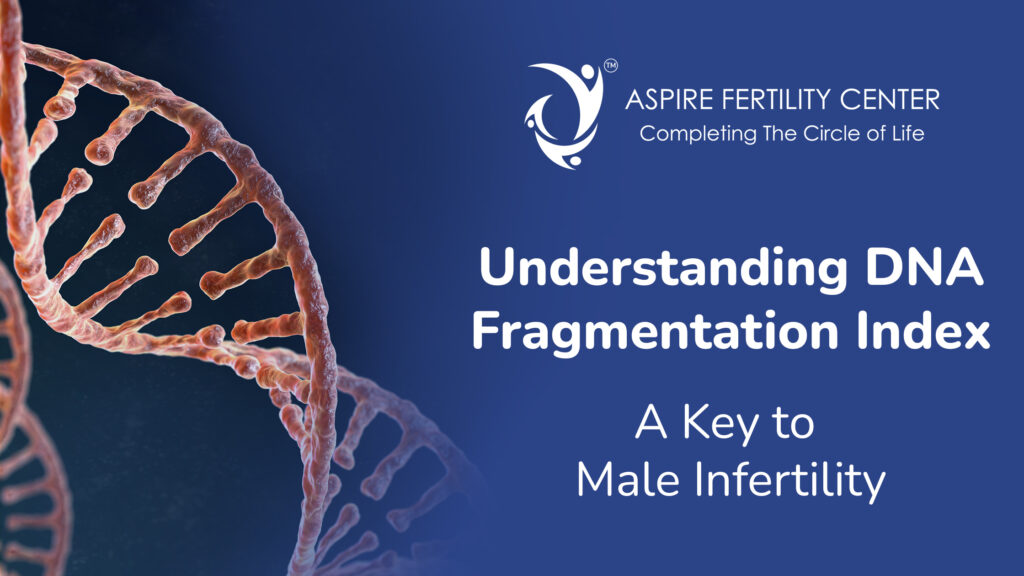
Sperm Selection Technique: Revolutionizing Male Infertility Treatment
Infertility is a growing concern among couples worldwide, with male infertility accounting for almost 50% of the cases. While factors like sperm count and motility are common indicators of male fertility, the genetic health of sperm plays a crucial role. The DNA Fragmentation Index (DFI) test is an advanced diagnostic tool that evaluates sperm DNA integrity, offering valuable insights for couples struggling with infertility.
This article explores the importance of the DNA Fragmentation Index test, its process, and how it helps in addressing male infertility effectively.
What is the DNA Fragmentation Index (DFI) Test?
The DNA Fragmentation Index (DFI) test is a diagnostic procedure that measures the percentage of sperm with fragmented DNA in a semen sample. Unlike standard semen analysis, which assesses parameters such as sperm count, motility, and morphology, the DFI test evaluates the quality and stability of sperm DNA. This deeper analysis is critical for understanding unexplained infertility or recurrent pregnancy loss.
Why is Sperm DNA Integrity Important?
Sperm DNA contains the vital genetic information necessary for the growth and development of an embryo. When the DNA is fragmented, it can lead to:
- Decreased fertilization rates
- Poor embryo quality
- Increased chances of miscarriages
- Failed assisted reproductive techniques like IVF and ICSI
The DFI test for male infertility provides a more precise understanding of these challenges and helps tailor treatment options.
Common Causes of DNA Fragmentation
Sperm DNA fragmentation can be triggered by a range of factors, including:
- Lifestyle Factors
- Smoking, excessive alcohol consumption, and poor diet contribute significantly to DNA damage.
- Chronic stress and lack of physical activity can also increase the risk of fragmentation.
- Environmental Factors
- Exposure to toxins, pollution, and radiation can cause oxidative stress, leading to DNA damage.
- Prolonged heat exposure, such as frequent use of hot tubs, can negatively impact sperm health.
- Medical Conditions
- Varicocele (enlarged veins in the scrotum)
- Infections in the reproductive tract
- Chronic illnesses such as diabetes and hypertension
- Age
- Aging leads to reduced sperm quality and increased DNA fragmentation.
Understanding these causes helps in adopting preventive measures and improving sperm quality.
How is the DNA Fragmentation Index Test Performed?
The DNA Fragmentation Index test involves a simple and precise process:
- Sample Collection:
- A semen sample is typically collected through ejaculation, at a medical facility or laboratory.
- Laboratory Analysis:
- Advanced techniques like the Sperm Chromatin Structure Assay (SCSA), TUNEL assay, or Comet assay are used to evaluate DNA fragmentation levels.
- Result Interpretation:
- The percentage of fragmented DNA is calculated and categorized into normal, moderate, or high-risk levels.
Interpreting DFI Results
- Normal DFI (<15%)
- Indicates healthy sperm DNA with a high likelihood of natural conception.
- Moderate DFI (15-25%)
- Suggests potential challenges in fertility; assisted reproductive techniques may be required.
- High DFI (>25%)
- Indicates significant DNA damage, which may lead to infertility or failed ART treatments.
Who Should Consider a DFI Test?
The DFI test for male infertility is typically recommended for:
- Couples experiencing unexplained infertility
- Men with a history of recurrent pregnancy loss
- Cases of repeated IVF or ICSI failures
- Men with known risk factors, such as smoking or toxin exposure
This test provides clarity and allows couples to make informed decisions about their treatment options.
Treatment Options for High DNA Fragmentation Levels
If a high DNA Fragmentation Index (DFI) is detected, various interventions can help improve sperm quality:
- Lifestyle Modifications
- Adopt a balanced diet rich in antioxidants (e.g., fruits, vegetables, and nuts).
- Avoid smoking, alcohol, and recreational drugs.
- Regular exercise and effective stress management can help improve overall fertility health.
- Medical Treatments
- Treat underlying conditions such as infections or varicocele.
- Use supplements like Coenzyme Q10, Vitamin C, and Vitamin E to reduce oxidative stress.
- Advanced Fertility Treatments
- IVF (In Vitro Fertilization): Fertilization occurs in a controlled lab environment, bypassing natural barriers.
- ICSI (Intracytoplasmic Sperm Injection): A single sperm is directly injected into an egg, increasing the chances of successful fertilization.
Aspire Fertility Center: Your Partner in Parenthood
Aspire Fertility Center is recognized as the best IVF clinic in Bangalore, dedicated to empowering you to make informed decisions about your family’s future. We offer world-class facilities and personalized care, ensuring a supportive and nurturing environment for your fertility journey.
Our IVF facility is equipped with the latest advancements in reproductive technology, including a Class 10,000 BioClad Modular Lab & Clean Room, Laser Assisted Hatching, Embryo Micromanipulation, and Samsung HERA W9 ultrasound for outstanding imaging capabilities. Our team of fertility experts, led by Dr. Ashwini G. B., one of only 50 ESHRE-certified Clinical Embryologists in India, provides tailored fertility treatments, including IUI, IVF, ICSI, and PGT.
With over 10 years of IVF expertise and 13,000+ happy families, our team of highly skilled and experienced Doctors and Fertility Specialists is committed to helping couples overcome infertility. Our expertise in advanced diagnostic tools, including the DNA Fragmentation Index test, ensures accurate diagnoses and effective treatment plans.
Aspire Fertility Center is committed to supporting your journey to parenthood, providing personalized care and guidance every step of the way.
Success Stories at Aspire Fertility Center
At Aspire Fertility Center, we take pride in our high success rates and compassionate care. Many couples have achieved their dream of parenthood through our tailored treatments, even in complex cases involving high DFI levels.
Click here to see our inspiring success stories: https://aspirefertility.in/patient-stories/
Preventive Measures to Reduce DNA Fragmentation
- Follow a Healthy Lifestyle
- Focus on consuming a balanced diet packed with essential nutrients to support reproductive health, and strive to maintain a healthy weight.
- Avoid exposure to toxins and pollutants.
- Manage Stress
- To manage stress levels, incorporate stress-reducing activities like mindfulness exercises, yoga, or meditation into your daily routine.
- Stay Active
- Regular exercise improves overall health and reduces oxidative stress.
Conclusion
The DNA Fragmentation Index test is a revolutionary tool in diagnosing and addressing male infertility. By evaluating the genetic integrity of sperm, this test helps identify hidden challenges and guides couples toward effective solutions.
With its state-of-the-art facilities and compassionate care, Aspire Fertility Center is your trusted partner in overcoming infertility. If you’re facing fertility challenges, take the first step today with Aspire Fertility Center.
To speak to one of our Fertility and IVF experts, book an appointment at https://p.trias.in/book/client/aspire or you can also call us at 9620004610 / 6410 to schedule a visit at either of our centers in HSR Layout or Sarjapur Road.
FAQs About DNA Fragmentation Index (DFI) Test
1. What is the cost of a DNA Fragmentation Index test?
The cost varies depending on the clinic and region. At Aspire Fertility Center, we offer affordable and accurate testing services.
2. Can high DNA fragmentation levels be treated?
DNA fragmentation levels can improve with lifestyle changes, medical interventions, and advanced fertility treatments.
3. Is the DFI test painful?
No, the DFI test is non-invasive and painless, requiring only a semen sample.
4. How long does it take to get DFI test results?
Results are typically available within a few days.
5. Can the DFI test replace traditional semen analysis?
No, the DFI test complements semen analysis, providing a more comprehensive understanding of sperm health.





